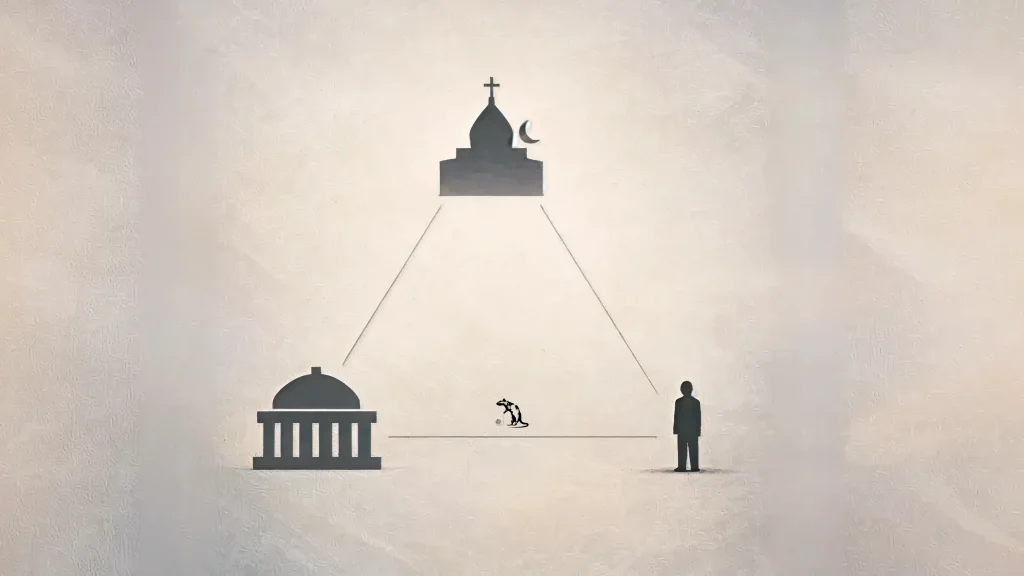Let’s Kill the Isms: A Farewell to Pseudo-Intellectualism
Let’s be honest.
This article, the one you’re reading right now, might be sophistry too.
Well-written, sure. Slightly self-aware. Lightly philosophical. But let’s not pretend it’s revolutionary. It’s not going to overthrow capitalism. It’s not going to make you question your place in any real material system. At best, it’ll give you a few lines to quote at a dinner party and maybe a temporary high from “getting it.”
But what are we really getting?
That’s the problem. Sophistry isn’t just out there. It’s in here. It’s baked into how we talk, think, and write, especially when we pretend we’re not part of it.
What Even Is Sophistry?
Let’s not assume everyone knows.
Sophistry goes back to Ancient Greece. Sophists were teachers who taught rhetoric, the art of persuasion to wealthy young men. They weren’t trying to find the truth; they were trying to win arguments. Plato hated them. He believed they used clever language to manipulate rather than enlighten.
Sophists didn’t ask: “What’s right?”
They asked: “What will make me sound right?”
That’s the entire issue.
Sophistry is the art of seeming smart.
Not being right, or being good — just appearing wise.
Today, we’ve modernized sophistry into content.
Hot takes, think pieces, panel discussions, carousel posts.
Not conversation — performance.
Not inquiry — aesthetics of intellect.
We write not to seek understanding, but to signal that we already understand.
Even this? Maybe just a better-packaged signal.
Sophistry Is Everywhere Now
We’ve built a whole ecosystem around persuasive noise.
An entire internet full of articulate nothings.
Watch closely and you’ll see it: the rise of “Instagram philosophers,” podcast panels where everyone agrees, and threadbois who summarize Derrida without ever mentioning that Derrida hated summaries.
It’s not that people are dumb. It’s that being smart has become a style.
As long as you sound complex enough, you can say almost anything. The actual content becomes irrelevant. What matters is whether your sentence is dense enough, your vocabulary intimidating enough, and your references obscure enough to feel exclusive.
And if someone questions you? Just accuse them of “not reading enough.”
That’s not intellectualism. That’s intellectual gatekeeping.
That’s sophistry.
Sophistry Feeds on Insecurity
Why do we fall for it?
Because most of us are insecure, and smart enough to hide it well.
We want to sound intelligent without risking the humiliation of being wrong. So we speak in carefully vague ways. We hedge. We reference. We imply depth instead of doing the painful work of getting there.
Ask someone to explain what they believe, about feminism, or Marxism, or atheism and watch how quickly the façade slips. Most of us are just repeating things we only partially understood from a quote slide or a YouTube video we didn’t finish.
The rest? Just vibes.
The moment someone challenges us, we shift into academic speak or spiral into moral superiority.
Because it’s easier to perform clarity than to admit confusion.
And confusion is where real thinking begins.
Even the Smartest People Are Faking It
Let’s not forget: most public intellectuals are brands now.
Some are sincere. Many aren’t.
It doesn’t matter if it’s Noam Chomsky or Jordan Peterson, Arundhati Roy or Sam Harris — everyone is in a marketplace of ideas, trying to package their worldview into books, clips, and speaking fees.
The danger isn’t that we listen to them. The danger is that we stop questioning them.
Because here’s the secret: no one has it figured out.
We’re all just people throwing ideas at the wall, hoping something sticks. The only difference is that some of us do it in language that sounds like a dissertation.
And that’s the thing about sophistry — it sounds like wisdom, even when it’s hollow.
Sophistry vs. Philosophy
There’s an old distinction between the sophist and the philosopher.
A sophist wants to win the room.
A philosopher wants to understand the world.
The sophist asks: How do I look smart in this argument?
The philosopher asks: What am I still missing here?
And look, we need rhetoric. We need clear thinking and persuasive speech. But when rhetoric replaces reflection, you get thought that flatters your identity but never challenges it.
You get feminism that only applies upward.
Liberalism that defends speech until it’s your uncle talking.
Marxism that never touches your family business.
Atheism that has no room for mystery or humility.
And you get articles like this, fluent, self-aware, kind of catchy – that critique the system while still surviving comfortably within it.
So, Where Does That Leave Us?
Nowhere neat.
And maybe that’s the whole point.
Because real thought doesn’t lead to clean answers, it leads to better questions.
It looks less like a Medium essay and more like sitting in silence with an uncomfortable truth. It’s not glamorous. You can’t monetize it. You can’t reduce it to a reel.
You can’t even finish it — because it never really ends.
If we’re serious about killing pseudo-intellectualism, we have to kill our need to sound smart all the time. We have to give up the idea that being right is the highest goal. We have to be okay with being unsure — publicly.
That’s not easy. Especially not online, where doubt is punished and confidence is rewarded, even when it’s baseless.
But if we’re going to keep talking — and let’s be real, we are — then at least let’s talk like people, not slogans.
Let’s stop using philosophy like makeup.
Let’s stop treating thought like branding.
And let’s admit — sometimes, we’re just faking it.
One Last Contradiction
Charles Bukowski wrote:
“What we need is less brilliance,
What we need is less instruction.
What we need are less poets.
What we need are less Bukowskies.”
Maybe what we need are fewer articles like this.
But until then, maybe we can try writing — and reading — like it’s okay to be confused. It’s OK to ask “what do you mean?” instead of pretending we already know.
Because thinking isn’t about looking clever, it’s about being brave enough to look stupid for a while.
And that, ironically, might be the smartest thing we can do.



